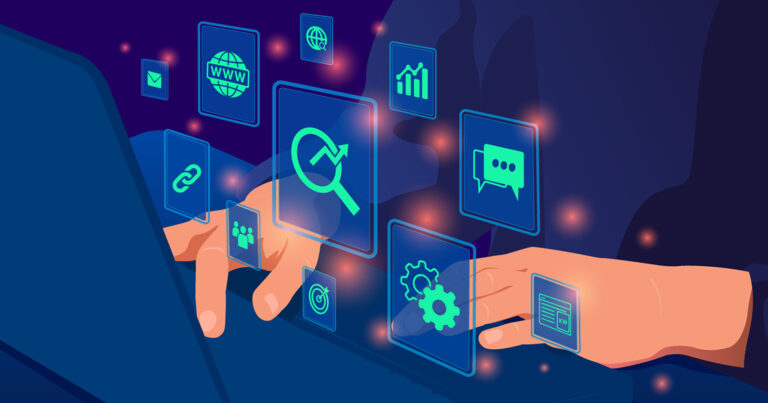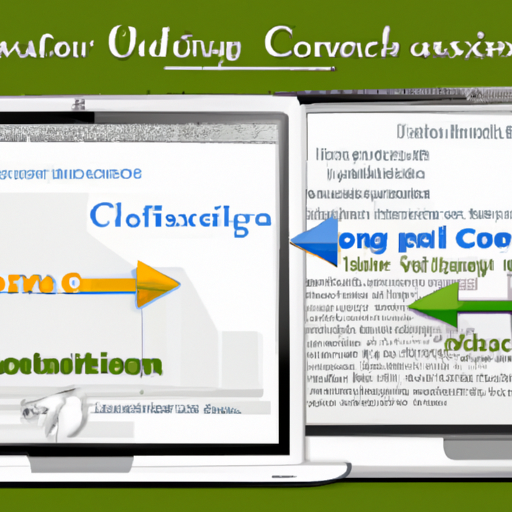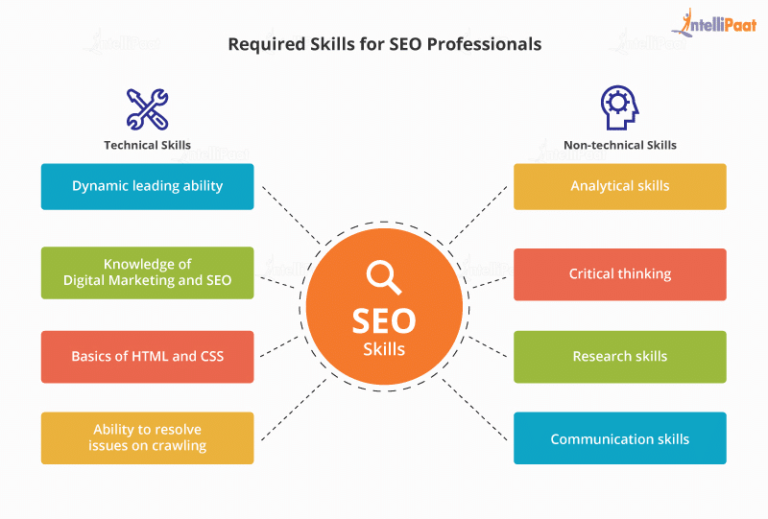Internet Marketing
Internet marketing has transformed how businesses connect with their audiences, using digital channels and online tools to drive engagement, build brand awareness, and convert potential customers into loyal advocates. In today’s digital landscape, internet marketing is essential for brands online to build and mAI and its impact on SEOntain a strong digital presence. Unlike traditional marketing, which relies on print or broadcast media, internet marketing harnesses the power of online platforms to deliver targeted, measurable results. This page outlines what internet marketing entails, provides real-world examples, offers actionable steps to launch your internet marketing efforts, and explains what a career in this dynamic field looks like, all while weaving in insights from industry leaders and relevant companies.
As technology continues to evolve, internet marketing thrives on its ability to adapt to consumer behavior. Internet marketing techniques have evolved to keep brands relevant in the digital landscape, allowing businesses to stay competitive and effectively reach their target audiences.
What Is Internet Marketing?
Internet marketing refers to the strategies and tactics businesses use to promote products or services through digital channels. It encompasses a wide range of activities, including various marketing methods such as search engine optimization, social media marketing, SEO content strategy, email marketing, paid advertising, and other online channels. The goal is to reach a target audience where they spend their time, online. According to the American Marketing Association, internet marketing focuses on creating value through digital interactions. Unlike traditional marketing, which often casts a broad net, internet marketing allows for precise targeting, real-time analytics, and scalable campaigns. The marketing process in internet marketing helps streamline efforts and achieve results by organizing strategies for both B2B and B2C approaches.
Internet marketing thrives on its ability to adapt to consumer behavior. As people spend more time on social media and search engines, businesses must craft digital marketing strategies that meet them there. This shift has made internet marketing a cornerstone of modern business, enabling brands to build relationships with potential customers at scale.
The Role of Search Engine Optimization
One core component of internet marketing is search engine optimization (SEO). SEO involves optimizing a website to rank higher on search engines like Google, increasing visibility to potential customers. For example, companies like Moz and SEMrush provide tools to conduct keyword research and track search results, helping businesses refine their internet marketing strategies. By focusing on high-quality content and strategic keyword placement, brands can drive organic traffic without relying solely on paid ads.
SEO is a long-term internet marketing strategy that requires patience but delivers sustainable results. Businesses that invest in search engine optimization often see compounding benefits as their content ranks higher over time, attracting more online traffic.
Social Media Marketing: Building Connections
Social media marketing is another pillar of internet marketing. Platforms like Instagram, LinkedIn, and TikTok enable businesses to engage with audiences through compelling content and social media posts. Take Nike, for instance. Its social media campaigns, often featuring influencer marketing with athletes like LeBron James, amplify brand awareness and foster customer loyalty. Social media marketing thrives on authenticity, with brands using storytelling to connect emotionally with their target audience.
An excellent social media presence requires consistency and creativity. Posting regularly and responding to comments builds trust, while visually appealing content captures attention. Selecting the right social media platform is crucial for targeted marketing strategies and seamless customer conversions. Social media platforms are ideal for testing new marketing strategies, as their analytics provide real-time feedback.
Content Marketing: Delivering Value
Content marketing complements social media efforts by delivering value through blogs, videos, and infographics. HubSpot, a leader in content marketing, emphasizes creating high-quality content that addresses customer pain points. For example, a blog post titled “10 Ways to Boost Your Productivity” can attract potential customers to a software company’s website, subtly promoting its tools. Content marketing strategies prioritize consistency and relevance.
A strong content marketing strategy aligns with SEO goals, incorporating keywords to boost visibility. By publishing regularly, businesses can establish authority in their industry, making content marketing a vital part of internet marketing. Repurposing content across multiple platforms, such as blogs, social media, infographics, and email newsletters, maximizes outreach and engagement, enhancing overall marketing effectiveness.
Email Marketing: Nurturing Leads
Email marketing remains a powerful internet marketing technique. Companies like Mailchimp enable businesses to craft personalized email marketing campaigns that nurture leads and drive conversions. Targeted email marketing campaigns are also highly effective for driving traffic to a business’s website and increasing engagement. For instance, an e-commerce brand might send a discount code to re-engage inactive customers, boosting customer retention. Effective email marketing hinges on segmentation.
Email marketing campaigns are cost-effective and highly measurable. By tracking open rates and click-throughs, businesses can optimize their digital marketing efforts, making email a cornerstone of their internet marketing plan.
Paid Advertising: Instant Visibility
Paid advertising, including Google Ads and pay-per-click advertising, offers immediate visibility. Online paid advertising enables businesses to reach targeted audiences quickly and cost-effectively through strategic campaigns on search engines and social media platforms. Search ads appear at the top of search results. Spotify, for example, uses Google Ads to promote its premium subscriptions, targeting mobile users searching for music streaming services. Paid ads are highly measurable, allowing businesses to track ROI and optimize digital marketing campaigns in real time.
Pay-per-click advertising suits businesses of all sizes, as budgets can be adjusted based on goals. Combining paid ads with organic marketing creates a balanced internet marketing strategy that maximizes reach.
Influencer Marketing: Authentic Promotion
Influencer marketing has surged in popularity, with brands partnering with social media influencers to reach niche audiences. Glossier, a beauty brand, collaborates with micro-influencers to showcase its skincare products, driving authentic engagement. Influencer partnerships are often integrated into a larger marketing campaign to achieve specific business goals. Influencer marketing works because it feels less like advertising and more like a trusted recommendation, making it a potent internet marketing strategy.
Choosing the right influencers is critical. Brands must align with influencers whose values match their own to ensure credibility. Influencer marketing campaigns often integrate with social media marketing for broader impact.
Video Marketing: Captivating Audiences
Video marketing is another growing trend. YouTube and TikTok videos allow brands to showcase products dynamically. Red Bull’s high-energy video content, featuring extreme sports, aligns with its brand identity and captivates its target audience. Video marketing strategies often integrate with social media platforms, amplifying reach through shares and likes.
Videos are versatile, suitable for tutorials, product demos, or storytelling. As mobile users increasingly consume video content, video marketing has become essential to internet marketing.
Mobile Marketing: Reaching Users on the Go
Mobile marketing targets users on smartphones and tablets, a critical focus given the rise in mobile usage. Starbucks’ mobile app, which integrates loyalty rewards and push notifications, exemplifies mobile marketing done right. By using customer data, Starbucks personalizes offers, enhancing customer engagement and driving sales.
Mobile marketing requires responsive design and fast-loading content, as mobile users expect seamless experiences. Incorporating mobile marketing into your internet marketing strategy ensures you reach audiences wherever they are.
How to Start Internet Marketing
To start internet marketing, begin by defining your goals, whether it’s increasing brand awareness, driving traffic, or boosting conversions. Conduct market research to understand your target audience and their preferred digital platforms. best SEO tools for business owners Google Analytics and Hootsuite provide insights into audience behavior and social media performance. Next, develop an internet marketing plan. It’s important to create a digital marketing strategy that aligns with your overall business objectives and guides resource allocation, tactical decisions, and performance tracking. For small businesses, this might mean starting with a blog and organic social media posts, while larger companies might invest in paid advertising and marketing automation platforms like Marketo.
Choosing the right digital marketing channels is crucial. A business to business (B2B) company might prioritize LinkedIn and email marketing, focusing on a longer, more strategic approach tailored to selling products or services to other businesses, while a B2C brand could focus on Instagram and influencer marketing. Budget allocation matters too, balance organic marketing (like SEO and content marketing) with paid strategies (like Google Ads) for maximum impact. Businesses can also market online using social media marketing and paid advertising to reach targeted audiences, establish an online presence, and generate engagement and conversions. Consistency is key; regular posting and campaign monitoring ensure your marketing efforts stay aligned with business objectives.
Testing and optimization are integral to internet marketing. A/B testing email subject lines or ad creatives can reveal what resonates with your audience. Neil Patel, a renowned digital marketer, advocates for data-driven decisions, using tools like Crazy Egg to analyze user behavior. By iterating based on marketing analytics, businesses can refine their internet marketing strategies for better results.
Developing a Winning Marketing Strategy(new: covers planning and strategic approach)
Internet Marketing Examples
Internet marketing examples abound across industries. Amazon’s recommendation engine uses customer data to personalize product suggestions, a form of direct marketing that drives sales. Coca-Cola’s “Share a Coke” campaign blended social media marketing with user-generated content, encouraging customers to share personalized bottles online. These campaigns highlight the versatility of internet marketing, from e-commerce to consumer goods.
Another example is Airbnb, which uses search engine marketing and content marketing to attract travelers. Its blog, featuring destination guides, ranks well in search results, driving organic traffic. These internet marketing examples demonstrate how brands use multiple channels to achieve their goals.
What Is an Internet Marketing Job?
An internet marketing job spans roles like digital marketing manager, SEO specialist, and social media strategist. A digital marketing career offers flexibility, with opportunities to work in-house, at agencies, or as a freelancer. Companies like Salesforce and Adobe hire digital marketers to oversee marketing campaigns, analyze performance, and develop online marketing strategies. According to LinkedIn, demand for digital marketing professionals has grown 30% year-over-year.
A digital marketing manager might oversee multiple channels, from social media to paid ads. An SEO specialist focuses on keyword research guide and on-page SEO optimization, while a content marketer crafts blogs and videos. Salaries vary, entry-level roles start around $50,000 annually, while senior positions at companies like Google can exceed $150,000. A digital marketing career requires adaptability, as digital marketing trends evolve rapidly.
The Importance of Ethical Marketing
Ethical marketing is a growing concern in internet marketing. Transparency in data usage and avoiding manipulative tactics build trust with potential customers. Patagonia, for instance, aligns its digital marketing efforts with its environmental mission, resonating with eco-conscious consumers. Ethical marketing enhances brand credibility and fosters loyal customers.
Businesses must prioritize privacy, especially with regulations like GDPR. Ethical marketing practices strengthen long-term relationships, making them a critical component of any internet marketing strategy.
Using Marketing Automation
Marketing automation simplifies repetitive tasks such as scheduling posts on social media and managing email marketing campaigns. Tools like Zapier and ActiveCampaign enable businesses to scale their digital marketing efforts efficiently. Automation frees up time for strategic planning, allowing marketers to focus on creative internet marketing strategies.
Automation also enhances personalization. By segmenting audiences based on behavior, businesses can deliver tailored content, improving the effectiveness of their marketing campaigns.
Maximizing Social Media Platforms
Social media platforms like X offer unique opportunities for internet marketing. Brands can engage in real-time conversations, using trending topics to boost visibility. For example, Wendy’s witty X posts exemplify an excellent social media presence, driving engagement through humor. Monitoring social platforms ensures brands stay relevant and responsive.
Each platform serves a different purpose, LinkedIn for B2B, TikTok for younger audiences. Tailoring content to each platform’s audience maximizes the impact of social media marketing.
Balancing Organic and Paid Strategies
Internet marketing’s advantages include cost-effectiveness compared to traditional marketing channels. Digital campaigns can be launched with minimal upfront costs, and tools like Canva make content creation accessible. However, challenges exist, standing out in a crowded digital space requires innovative marketing strategies and consistent effort.
Combining organic marketing (like SEO and social media) with paid advertising creates a strong internet marketing strategy. Organic efforts build long-term value, while paid ads deliver immediate results.
Driving Customer Retention
Customer retention is a key benefit of internet marketing. By nurturing relationships through email marketing and social media, brands can turn one-time buyers into loyal customers. Sephora’s Beauty Insider program, for instance, uses personalized offers to keep customers coming back. Retention-focused internet marketing strategies prioritize long-term value over short-term gains.
Engaging loyal customers through exclusive content or rewards programs strengthens brand loyalty. Retention strategies are essential for sustainable growth in digital marketing.
Integrating Marketing Functions
Marketing functions like branding, promotion, and analytics converge in internet marketing. Each function supports the others, strong branding enhances ad performance, while analytics inform content marketing strategies. Companies like Procter & Gamble integrate these functions seamlessly.
Effective internet marketing requires collaboration across teams. Creative, analytical, and technical skills combine to deliver campaigns that resonate with audiences and drive results.
Building Brand Awareness Online (new: highlights strategies for brand development and their importance)
Building brand awareness online is a fundamental goal for any internet marketing strategy. It involves increasing the visibility of your brand so that potential customers recognize and remember it. Effective brand awareness lays the foundation for trust, loyalty, and ultimately, conversions. There are several proven strategies to develop and enhance brand awareness in the digital space.
One key approach is using social media marketing to create engaging and shareable content that resonates with your target audience. Social media platforms provide a unique opportunity to tell your brand’s story, showcase your values, and interact directly with customers. Consistency in posting and maintaining an authentic voice helps build a loyal community around your brand.
Another powerful strategy is search engine optimization (SEO). By optimizing your website and content for relevant keywords, you increase your chances of appearing in search engine results when potential customers are looking for products or services like yours. This organic visibility builds credibility and drives sustained traffic to your site.
Content marketing also matters in brand development. Creating high-quality, valuable content such as blogs, videos, and infographics positions your brand as an authority in your industry. This not only attracts visitors but also encourages sharing and link building strategies, further amplifying your reach.
Paid advertising, including pay-per-click (PPC) campaigns and social media ads, can accelerate brand awareness by targeting specific demographics and interests. These campaigns allow precise control over who sees your message and when, making them highly effective for reaching new audiences quickly.
Influencer marketing is another impactful tactic. Partnering with influencers who align with your brand values enables authentic promotion to their engaged followers. This strategy often results in higher trust and engagement compared to traditional advertising.
Finally, integrating mobile marketing ensures your brand connects with users on the devices they use most. Mobile-optimized websites, apps, and targeted SMS campaigns provide seamless experiences that reinforce brand recognition.
By combining these strategies thoughtfully, businesses can build strong online brand awareness that drives long-term growth and customer loyalty.
Measuring Success: Analytics and KPIs (new: emphasizes monitoring, data analysis, and performance optimization)
Measuring the success of your internet marketing efforts is crucial for understanding what works and where improvements are needed. Analytics and Key Performance Indicators (KPIs) provide insights into campaign performance, audience behavior, and overall return on investment (ROI). By regularly monitoring these metrics, businesses can make data-driven decisions to optimize their strategies and maximize results.
Key Metrics to Track
Some essential KPIs for internet marketing include website traffic, conversion rates, click-through rates (CTR), bounce rates, and customer acquisition costs. For example, tracking website traffic helps determine if your SEO and content marketing efforts are attracting visitors, while conversion rates reveal how effectively those visitors take desired actions, such as making a purchase or signing up for a newsletter.
Tools for Analytics
Popular tools like Google Analytics, SEMrush, and HubSpot offer complete dashboards to monitor these metrics in real time. These platforms allow marketers to segment data by demographics, source, and behavior, providing a detailed picture of how different marketing channels perform. Integration with social media platforms and email marketing software further enhances the ability to analyze cross-channel effectiveness.
Setting SMART Goals
To make analytics meaningful, it’s important to set SMART (Specific, Measurable, Achievable, Relevant, Time-bound) goals. For instance, instead of aiming to “increase website traffic,” set a goal to “boost organic traffic by 20% over the next quarter.” This clarity helps focus marketing efforts and provides benchmarks for success.
Continuous Optimization
Internet marketing is not a set-it-and-forget-it process. Regularly reviewing analytics enables marketers to identify underperforming campaigns and adjust tactics accordingly. A/B testing different headlines, call-to-actions, or ad creatives based on data insights can significantly improve engagement and conversions. Additionally, monitoring ROI ensures that marketing budgets are allocated efficiently.
Reporting and Communication
Clear reporting of analytics and KPIs is essential for aligning marketing teams and stakeholders. Visual reports and dashboards make complex data accessible, fostering collaboration and informed decision-making. Sharing these insights regularly helps maintain transparency and drives continuous improvement across internet marketing campaigns.
By using analytics and KPIs effectively, businesses can transform raw data into actionable strategies.
Staying Ahead of Trends
Internet marketing thrives on adaptability. As search engines update algorithms, businesses must adjust their SEO and search engine marketing tactics. Google’s 2024 core update, for example, prioritized user-focused content, rewarding brands that invest in high-quality content. Staying informed about digital marketing trends keeps campaigns effective.
Subscribing to industry newsletters or following thought leaders like Rand Fishkin ensures marketers stay updated. Proactivity is essential in the fast-paced world of internet marketing.
Empowering Small Businesses
Small businesses can compete with larger brands through targeted internet marketing. Local SEO, for instance, helps brick-and-mortar stores attract nearby customers. A coffee shop might optimize its Google My Business profile to appear in local search results, driving foot traffic. Affordable tools like Buffer and Later make social media marketing accessible to all.
Small businesses benefit from internet marketing’s low entry barriers. With creativity and strategic planning, they can achieve significant results on modest budgets.
Scalability and Flexibility
Internet marketing’s scalability suits businesses of all sizes. A startup might begin with organic marketing, posting on social media websites to build an audience. As revenue grows, it can invest in paid ads or influencer marketing. This flexibility makes internet marketing a cornerstone of modern business growth.
Scalable strategies allow businesses to adjust their marketing efforts based on performance. Internet marketing’s adaptability ensures it remains relevant across industries.
Conclusion: Thrive with Internet Marketing
Ultimately, internet marketing empowers brands to connect with audiences on their terms. By using digital channels, businesses can craft personalized experiences that resonate. Whether you’re a small business owner or a digital marketer at a Fortune 500 company, mastering internet marketing unlocks endless opportunities to engage, convert, and thrive. Start with a clear internet marketing strategy, test and optimize relentlessly, and watch your brand soar in the digital landscape.
Related: For a complete overview, see our complete SEO guide for small businesses and content marketing and SEO guide.



